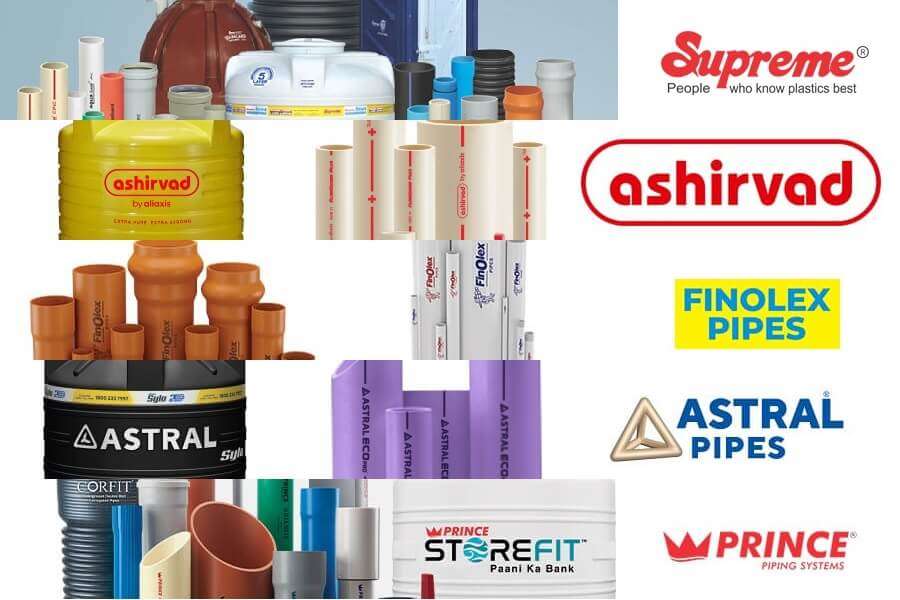
Introduction:
When it comes to plumbing projects, selecting the right pipes is crucial for ensuring the longevity and efficiency of your system. With so many options available, it can be overwhelming to choose the best pipes for your project. In this guide, we’ll explore some top-rated plumbing pipes and provide insights to help you make an informed decision.
Understanding Different Pipe Materials:
Plumbing pipes come in a variety of materials, each with its own set of pros and cons. Common materials include copper, PVC (polyvinyl chloride), PEX (cross-linked polyethylene), and CPVC (chlorinated polyvinyl chloride). Copper pipes are durable and resistant to corrosion, but they can be expensive. PVC and CPVC pipes are affordable and easy to install, but they may not be suitable for hot water applications. PEX pipes are flexible and resistant to freezing, making them ideal for cold climates.
Assessing Your Project Needs:
Before choosing plumbing pipes, it’s essential to assess your project’s specific requirements. Consider factors such as the water pressure, temperature, and environment in which the pipes will be installed. For example, if you live in an area with hard water, you may need to opt for corrosion-resistant pipes. Similarly, if you’re installing pipes in an area prone to freezing temperatures, you’ll want to choose materials that can withstand cold weather.
Considering Long-Term Durability:
When selecting plumbing pipes, it’s essential to consider their long-term durability. While some materials may be more affordable upfront, they may require more frequent maintenance and replacement in the long run. Investing in high-quality pipes made from durable materials can save you time and money on repairs and replacements down the line. Additionally, durable pipes can help prevent leaks and other plumbing issues that can cause damage to your home.
Exploring Environmental Impact:
Another factor to consider when choosing plumbing pipes is their environmental impact. Some materials, such as PVC, CPVC, and PEX, are manufactured using chemicals and processes that may be harmful to the environment. On the other hand, copper pipes are recyclable and have a long lifespan, making them a more sustainable option. If sustainability is a priority for you, be sure to research the environmental impact of different pipe materials before making your decision.
Seeking Professional Advice:
If you’re unsure which plumbing pipes are best suited for your project, don’t hesitate to seek professional advice. A licensed plumber can assess your specific needs and recommend the most appropriate materials for your system. They can also provide guidance on proper installation techniques to ensure your pipes perform optimally and last for years to come. Investing in professional expertise can help you avoid costly mistakes and ensure the success of your plumbing project.
Comparing Costs and Budgeting Accordingly:
Cost is always a consideration when undertaking a plumbing project, so it’s essential to compare the costs of different pipe materials and budget accordingly. While some materials may be more expensive upfront, they may offer long-term savings in terms of durability and maintenance. Be sure to factor in not only the cost of the pipes themselves but also the cost of installation and any additional materials or tools required.
Ensuring Code Compliance:
Before purchasing plumbing pipes, it’s crucial to ensure they comply with local building codes and regulations. Different jurisdictions may have specific requirements regarding the types of materials that can be used for plumbing systems. Failure to comply with these codes can result in fines, delays, and potential safety hazards. Be sure to research local building codes and consult with a licensed plumber to ensure your plumbing project meets all necessary requirements.
Conclusion:
Choosing the best plumbing pipes for your project requires careful consideration of factors such as material, durability, environmental impact, and cost. By understanding your project needs, seeking professional advice, comparing costs, and ensuring code compliance, you can make an informed decision and ensure the success of your plumbing project. Read more about best pipes for plumbing
